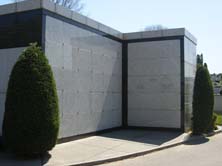Times 50
50 years was a long life until the 20th century. Now 50 years old is considered mid-life. Many expect to live to 100. Futurists predict that the person who lives to the age of 200 has already been born. We celebrate multiples of the number 50 as an indicator of longevity, an association that goes back to the Torah.
The biblical Jubilee repeated every 50 years. The formula in Torah for a Jubilee is that every 7 years there was a schmita year, a year of allowing the land to rest. From an agricultural point of view it was brilliant planning. After a cycle of seven schmita years there was an additional year of rest, the Jubilee year. In that year of celebration, there was no planting on the land, no harvesting of crops, and no working the land. If you are counting correctly, the Jubilee year was the second year in a row of allowing the land to rest.
For the practically minded, they doubt the Jubilee ever worked out as we wonder how there was enough food to last for a total of three years. For those with an abundance of faith, God provided sufficient food to last so as to allow for the Jubilee year of rest. Either way, God understood a restful time-out to be of paramount importance for human beings. Sometimes the essential harvesting is an internal process, reaping sustenance from positive predispositions such as gratitude, joy and caring.

Mt. Lebanon Cemetery burial wall
I have a profound connection to the number 50 and the concept of rest. My father’s funeral was planned for Sunday, December 14, 2003. The Jewish custom is that we bury our dead as quickly as possible. My father died on a wintry Friday morning. The first possible time for burial was Sunday morning. The weather was very cold and heavy snow began to fall at sunrise that day. Blizzard conditions were predicted for the afternoon. The cemetery would not open a grave in time for the funeral. We had a problem.
Some Jewish cemeteries offer an alternative to burial in the ground. They have crypts and walls. Opening the grave was uncertain, so we hurried to the cemetery just after dawn on Sunday to meet with the director. We purchased a “hole in the wall.” There would be no digging and the snow was not an impediment.
There were 50 numbered spaces in the wall. We briefly pondered which slot to select among the few left. Hole number 50 was still available. I picked 50 as it reminded me of the Jubilee year, the year of additional rest. For me, the analogy was poetic. The number 50 was a reminder to reach past the sadness and find meaning in my father’s complete rest.

Contemplating the association of a joyous word like Jubilee with the perfect rest of the deceased makes for some discordance and discomfort. In the Jewish tradition, death is not celebrated and is certainly not cause for a Jubilee. Yet our wishes for those who have died is that they achieve a perfect rest, as we recite in the words of the El Malei Rachamim prayer sung at most Jewish funerals which contains the prayer “God, grant our loved one a perfect rest.”
In the ancient world death was ordinary. In the modern world death is sometimes treated like a failure. We certainly don’t celebrate death as if a jubilation. The challenge is to allow the emotional trauma of loss engender an appreciation of life.
We need a rebalancing of our understanding of death. Death is not a failure. It is a certainty that awaits all of us. The jubilation should be finding time to celebrate whatever gifts life offers. In the wake of challenges and in the pain of losses, there is also the opportunity for rebalancing through an appreciation of what has been given each living being.
Opportunities to cease harvesting from outside of ourselves and cultivating from within is the lesson of the Jubilee year. So too is the potential lesson for us after the death of someone important in our lives. With grief we might be tempted to reject joy, gratitude and caring, hiding them away in a wall. Instead we can discover jubilation when we treasure our days and our lives, as the Psalmist advises, to unlock hearts of wisdom. Otherwise, whether living 50 years or 200, life will always be a day away from failure.
R’ Evan J. Krame






 Evan J. Krame was ordained as a rabbi by the
Evan J. Krame was ordained as a rabbi by the